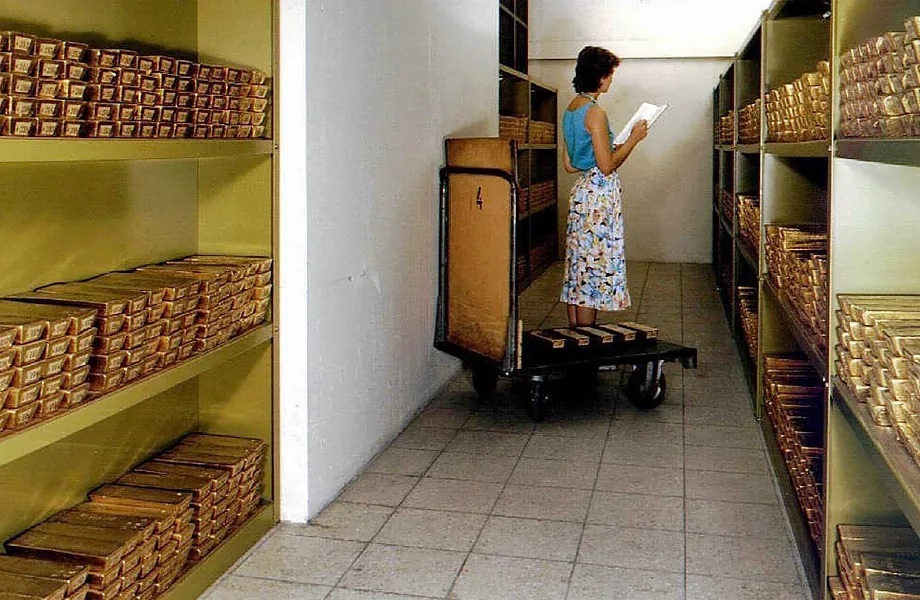The European Central Bank (ECB) released its annual report on the international role of the euro yesterday, and the conclusion is as clear as it is symbolic: central banks worldwide now hold more gold than euros. According to the document, published in June 2025, gold represents 20% of international reserves, while the euro falls to 16%, its lowest level in over two decades.
Behind this figure lies something deeper: countries are seeking security beyond traditional currencies. And for that, they are turning to an old acquaintance: gold.
In 2024, central banks bought over 1,000 tons of gold, for the third consecutive year. This raised their reserves to 36,000 tons, a figure not seen since 1965 when the global financial system still revolved around gold.
The report explains that 68% of central banks that purchased gold did so to diversify their reserves, meaning not relying solely on the dollar or the euro. Additionally, 40% stated they did so as protection against geopolitical risks: wars, sanctions, financial blockades.
In addition, the price of gold rose by 30% during the year, increasing its weight in statistics even though the physical volume remained similar. In summary, gold has once again become a refuge in a world that no longer provides guarantees.
When the world's major banks change what they hold as a safe asset, they are reshuffling the rules of the financial game. And although the movement is silent, its effects eventually trickle down.
The ECB has raised a red flag: the euro has lost weight in the global safe haven. If no action is taken, the impact will not only be seen in charts or balances but also in what citizens pay, save, and the amount of interest they may end up paying.
And How Does This Relate to Your Daily Life?
It may seem like a distant move, reserved for governments and central banks. However, the euro losing ground as an international reserve currency can also have consequences on your wallet:
Cryptocurrencies: The Growing Alternative
The ECB is also paying attention to another emerging trend: the increasing use of cryptocurrencies in the international landscape. The report highlights that in 2024, the United States created a strategic reserve of bitcoin worth $17 billion, using digital currencies seized in legal proceedings.
Furthermore, stablecoins based on the dollar - cryptocurrencies designed to maintain a stable value - already manage over $150 billion in U.S. Treasury bonds. For the ECB, this opens up a new scenario: if these digital currencies gain ground in transactions and reserves, the role of the euro could be further diminished. This is because they allow for moving large volumes of international money without going through traditional banks or using currencies like the euro. This would weaken the use and global influence of the continental currency.
"Accelerating work on the digital euro is crucial to strengthen European monetary sovereignty."
Although there are no significant figures associated with their official use outside the U.S. yet, the report suggests that cryptocurrencies could become a new form of international reserve, especially in regions where access to the traditional financial system is limited or subject to sanctions.
Lagarde: The Euro Needs to React
In the report's foreword, Christine Lagarde, President of the ECB, bluntly acknowledges that central banks' gold accumulation continued at a record pace. Faced with a more fragmented environment, she sends a clear message: Europe must strengthen its monetary sovereignty.
How? By accelerating the development of the digital euro, further integrating its financial markets, and facilitating internal investment. Lagarde summarizes it as: "In a more volatile geopolitical environment, accelerating the digital euro is crucial to reinforce European sovereignty."
The euro, the report states, remains relevant. But if it does not adapt, it risks falling behind digital currencies, alternative assets... and the age-old gold.
